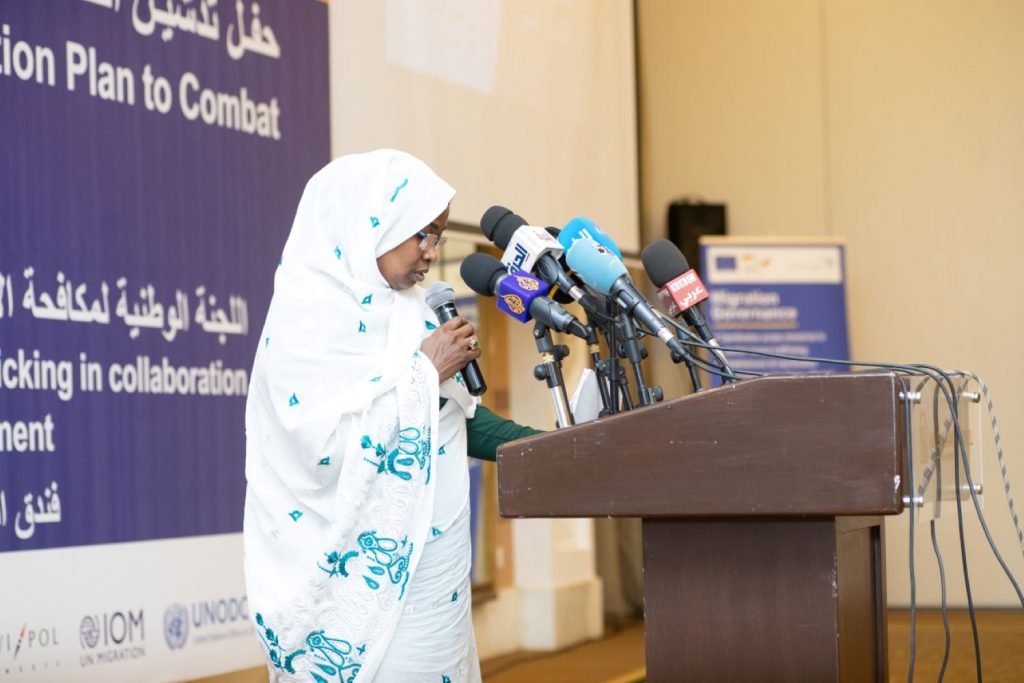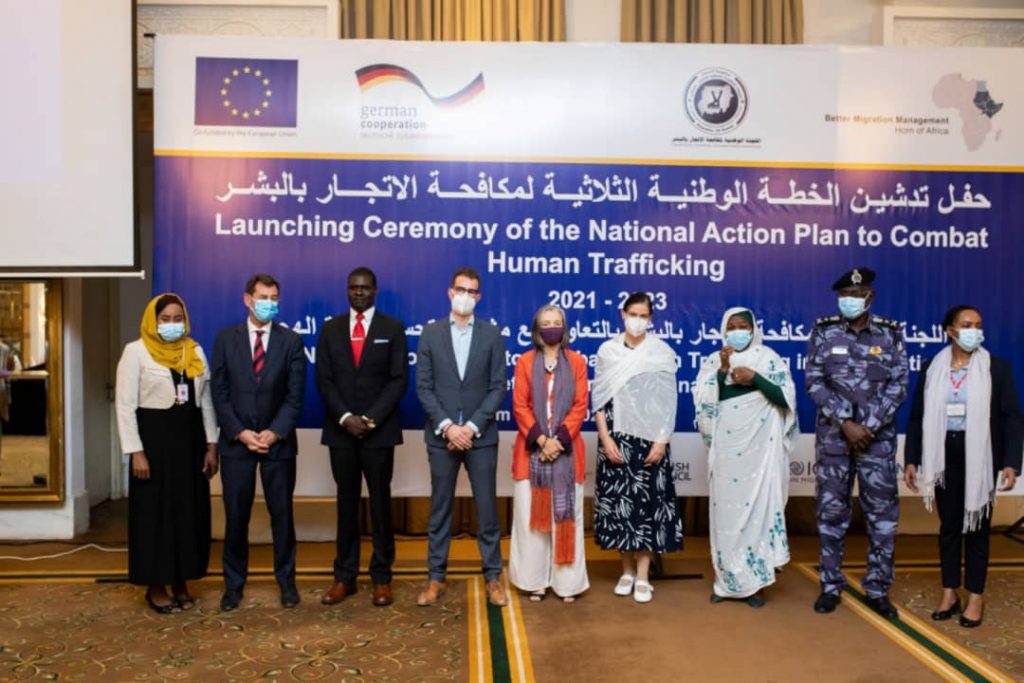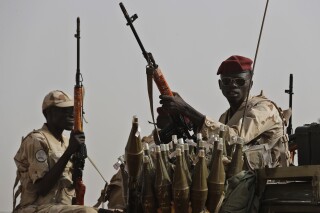
A New National Action Plan to Combat Human Trafficking in Sudan
Sudan had Made Efforts to Combat Human Trafficking – EU Envoy

Haffiya Abdalla
Sudan is considered as one of the cross-points for human trafficking and illegal immigration. The European countries have pledged support to help eradicate human trafficking by using air and sea support to pursue multinational human smugglers.
Over the past decade, thousands of migrants, refugees, and asylum seekers have been transiting to and through Sudan which is currently hosting some 1.3 million migrants. Most of them rely on smugglers for the transport into, through, and out of Sudan, and therefore risk falling prey to abuse and exploitation by smugglers or human traffickers.

According to the UN Refugee Agency (UNHCR, 2019), persons of concern consulted in Al-Shagarab camps mentioned kidnapping, abduction, physical violence, and sexual harassment among their most common fears. With the support of the Better Migration Management program, funded by the European Union and Germany, the Sudanese Government implements measures to counter and prevent human trafficking and to improve the protection of victims of trafficking.
The transitional government recently launched a new national action plan to combat human trafficking in Sudan which is the primary transit country of migrants to Europe from the Horn of Africa.
With the participation of Justice Minister Nasreldine Abdel Bari and European Union Ambassador to Sudan Robert van den Dool, the National Committee to Combat Human Trafficking (NCCT) inaugurated the National Action Plan for Combating Human Trafficking 2021-2023 in Sudan.
Undersecretary Ministry of Justice and NCCT Head Siham Osman stated that the three-year plan aims to curb human trafficking through several programs to reduce poverty and offer new options for migrants, refugees, and asylum seekers.

Also, the plan will ensure better protection and shelter for the victims including the establishment of specialized prosecutor offices and courts, cross-border cooperation, and access for victims of trafficking to legal aid to improve investigation and prosecution.
The EU-supported action plan met the four core aspects to combating human trafficking including “Prevention, Protection, Prosecution and Coordination, and Partnership,” said Osman.
During the first six months of this year, 29122 illegal migrants reached Italian shores including 1,428 Eritreans, 1,309 Sudanese. The number of Ethiopians was insignificant.
From January 31 May 2021, Libyan authorities intercepted over two 2000 Sudanese seeking to cross the Mediterranean sea and reach Europe embarking on dangerous boats.
In his remarks, Abdel-Bari reiterated his government commitment that the plan to fight human trafficking would maintain “the human dignity; that we must respect and preserve, whether a person is living in his country, travels within or migrates to other countries.”
According to the UNHCR data for the past seven months, migrants from Bangladesh tops the list of countries of illegal migration to Europe with 6951 migrants who cross the sea mainly from Libya.

The Trafficking in Persons Report 2021 by the U.S. Department of State said that the Sudanese authorities did not “fully meet the minimum standards” for the elimination of trafficking but is making significant efforts” in this respect.
Accordingly, the State Department placed the east African country in its Tier 2 watchlist to encourage Sudanese efforts to meet the international standards.
For his part, the EU envoy said that Sudan had made efforts to combat human trafficking, including the investigation, prosecution of human traffickers, and protection of victims.
He further said that the three-year plan aims to enable Sudanese institutions with EU support to facilitate safe and legal migration, combating illegal migration, providing protection, and creating livelihood opportunities.
It is worth noting that the Better Migration Management (BMM) program, funded by the EU Trust Fund, supports the NCCT to coordinate across ministries to counter human trafficking and the smuggling of migrants, and to address victims’ needs more efficiently. The program improves the capacities of the NCCT members, advocates with relevant actors to support the implementation of the national action plan, and implements training to improve the capacities of law enforcement officials as well as members of civil society organizations. BMM is active in the process of establishing referral systems and standard procedures for victims of human trafficking and vulnerable migrants in East Sudan, supports safehouses and building capacities of service providers.
Victims and Vulnerable Migrants:

Since 2016, the Better Migration Management (BMM) program funded by the European Union and Germany has been supporting the Sudanese Government in countering human trafficking and improving the protection of victims of trafficking and vulnerable migrants. The program supports the National Committee to Combat Trafficking, the body that coordinates all measures related to countering human trafficking, including the protection of victims. Measures include strengthening legal frameworks, developing capacity, improving assistance, and raising awareness. The program is also designed to enhance cross-border cooperation and cooperation between national law enforcement agencies and prosecutors on trafficking and smuggling cases. Manuals have been distributed in cooperation with the Judicial and Legal Science Institute along with dictionaries in Amharic and Tigray languages. Specialized training has been provided and curricula have been developed for the Judicial and Legal Science Institute and the Police Training Authority to improve the quality and effectiveness of investigations and the prosecution of cases of human trafficking and smuggling of migrants. All these activities are implemented by Civipol, GIZ, and the United Nations Office on Drugs and Crime (UNODC) in Sudan.



